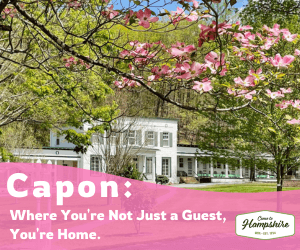Anne Montague works to preserve an often overlooked corner of American history before it’s too late.

Anne Montague has always been motivated to leave her mark on the world. Born in 1939 in Huntington, she remembers “bits and pieces” of World War II. She recalls her grandmother, a social activist, worrying about the lunacy of the war and wondering whether the war would actually mean anything.
But Montague left those concerns to her grandmother, for a while. She married, divorced after 15 years, and pursued a career in psychology but felt unfulfilled. “What I needed to do was leave records and build things,” she says.
Eight years in marketing and another eight working with the U.S. Army Corps of Engineers didn’t fulfill her either. Then, on a 2003 trip to her 45th high school reunion, she decided it was time to return home to West Virginia. “I’d always said I’m going to make sure that my state could be seen for the beautiful people and values (they hold),” she says. She just didn’t have any idea how she would accomplish her goal.
In 2005 Montague started the nonprofit Thanks! Plain and Simple, Inc. to help veterans start projects to create something for the common good. Although it stalled a little from her lack of experience working with veterans who suffered from post-traumatic stress disorder and traumatic brain injuries, it soon took a satisfying turn.
“In 2008 I did the first interview with a Rosie,” Montague says. She’s referring to a nickname given to women who worked in factories during World War Two. It’s based off the famous “We Can Do It!” poster featuring “Rosie the Riveter,” flexing her bicep to encourage women to join the war effort. “Twenty minutes into the interview I knew we’ve got something very special here. This was a woman who not only had come through a world war and made airplanes, but she had also raised children to be independent. She was a pioneer woman. She didn’t know it, but she was.”
Montague changed Thanks! Plain and Simple to focus on Rosies. In early 2009, she convinced businesses to help fund a full-page color ad in the Charleston Gazette. Within a week she had heard from 14 Rosies. She interviewed the women about their wartime experience and how it changed their lives, and she also drew them into Thanks! Plain and Simple’s original mission, involving the Rosies in community projects that would leave a visible legacy—all of it allowing her to, finally, “leave records and build things.” On Memorial Day, 2012, the Rosies opened a park in St. Albans named the “Rosie the Riveter Park.” Since then the Rosies have finished 18 more projects.
It has been six years since the project started, and in that time more than half the state’s living Rosies have passed away. Montague continues her tireless efforts to preserve the Rosies’ legacy, passing down their stories before the women are all gone. Thanks! Plain and Simple created a documentary about the Rosies, and the women have been publicly thanked by both the nation of Belgium and the King and Queen of the Netherlands. Rosies have created lesson plans for schools about their stories, and Montague frequently gives lectures on Rosies and their importance.
Funding remains an issue, Montague says, as does finding the manpower to conduct interviews with Rosies. She’s been disappointed more people haven’t been more eager to support the cause. But ultimately, Montague is happy she returned home to do her life’s most important work and to have found meaning in the Second World War.
Written by Maia Brumage












Leave a Reply